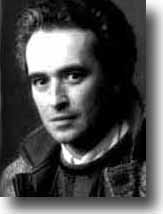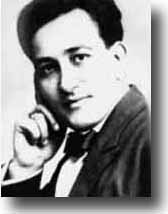José Carreras and Miguel Fleta
John Steane, Opera Now, March/April 2001


Two Spanish tenors assumed heroic status among their adoring public at either end of the 20th century. Both were singers whose art came straight from the 'soul'
Singing from the Soul is the title of Carreras's autobiography. 'Soul' - that abused, unsubstantiated, necessary word - is what comes to mind when listening sympathetically to Miguel Fleta. With Carreras, certainly since his great illness, the voice has functioned under severe limitations. With Fleta, even in his prime, taste and technique imposed limitations different in kind from Carreras's but comparable in degree. In both, some quality that is beyond voice, and even beyond what we think of as musicianship, exercises a fascination and evokes a response which seems to call upon the immemorial word to account for it. Fleta was the tenor-hero of his country in the first half of the century as Carreras has been in the second. Is the 'soul' that we intuitively posit in some way a national possession? Have these voices, these arts and 'souls', any demonstrably shared characteristic that might in turn be redefined as Spanish? I doubt it, but perhaps we shall see.
First, who was Miguel Fleta? Such is fame that even readers of these pages, with their given interest in singers and singing, may find the name no more than vaguely familiar. He is remembered in the history books primarily for having 'created' the role of Calaf, the Unknown Prince in Puccini's Turandot. That was in 1926 after at least three famous Italian tenors (Gigli, Lauri-Volpi and Martinelli) had been named. But Fleta's real identity was as a popular icon, the operatic counterpart of some great matador, and one whose vocal exploits would be applauded in much the same way. The held high-notes, their long diminuendo and carry-over into the next phrase, may not have appealed to the tastefully erudite, but they still brought the house down. Fleta-nights in Spain became pop-concerts in atmosphere if not in repertoire. He sang his role in the opera, Don José or Canio or the Duke in Rigoletto, for instance, and then, still in costume and with a piano trundled on to the stage, songs and arias by request might follow till singer and audience were exhausted and he was borne shoulder-high back to his hotel. He enjoyed comparable popularity in South America, though rather less in New York, and he never sang publicly in London. Several of his recordings became best-sellers, particularly the song called 'Ay ay ay which accompanied him everywhere. Excessively prodigal of his gifts, often at the expense of his health, he declined and died in 1938, at the age of 39. The year of his birth is given as 1897 in most reference books. In notes for a compact disc on the Preiser label, Clemens Höslinger describes this as one of the many myths that have grown up around Fletas name, and gives 1893 as the date of birth. More recently, Fleta's grandson, pointing out that the essential documents were destroyed in the Civil War, has given 1898, which is the date accepted here.
Carreras, as we know, came very near to death when he was just one year older. In 1987, leukaemia was diagnosed, his case being complicated by the necessity of using the patient's own bone-marrow for transplant (they removed it, cleaned it and replaced it, but the process was a great deal more complicated and painful than that might suggest). Even then, there remained the danger of rejection: the odds were against his survival and still more strongly against the likelihood of a return to the stage. He could, in other words, well have been a 'singer of the century' whose career had lasted just about as long as Fleta's. How would they then have compared?
Carreras, again like Fleta, had a brilliant early career. As boy and man he has been one of those lucky people who know their own mind. It seems he knew his from the age of six, when he saw The Great Caruso at the local cinema and found next day that he had memorised the arias. From morn to night he sang them, for months on end, in his strong boy's alto; and when he won the part of the boy in Falla's El retablo del Maese Pedro it seemed quite natural that the 12-year-old should be making his operatic debut at Spain's foremost opera house, Barcelona's Liceu. In the years that followed, there grew a shared conviction that he was born to sing. Powerful support arrived when Montserrat Caballé heard him and recognised his talent as he sang his role of Flavio, the confidant, in her own first Norma. This was in 1970 and was followed by his first leading role, as Gennaro to Caballé's Lucrezia Borgia. He also won outright the coveted first prize of the International Verdi Competition at Parma, which led to performances at the Italian city's opera house with its notoriously formidable audience. No favours were expected for a Spaniard, but evidently they knew a good singer when they heard one, and after the first 'bravo' all went well. So indeed did his rapid succession of debuts in Madrid, London (at the Royal Festival Hall), New York (with the City Opera), Vienna and Milan. Within five years, he had gained a position which most would regard as the top of the profession. If confirmation were needed, it came promptly with his invitation from Karajan to sing Verdi's Requiem and Don Carlos at Salzburg.
By the end of that year, 1976, Carreras was 30. Fleta, born, like him, in December, reached 30 in 1928. He had made his operatic debut when two years younger than Carreras. By 1917, when not yet 20, his voice and style had developed sufficiently for him to be recognised as a cut above the other singers in a prestigious 'jota' competition (which nevertheless he did not win). He also attracted the attention of a teacher who eventually became his wife. With her he left Spain for Italy, made an immediate impression and was engaged by the composer Riccardo Zandonai for performances of his Francesca da Rimini. This was his professional stage debut, conducted by Zandonai himself who in 1922 engaged him for the world premiere at Rome of his Giulietta e Romeo. In 1920 he became a favourite at the Volksoper in Vienna. Prague and Budapest, Monte Carlo and Venice also heard him before his return to Spain for a sensational debut in Madrid. It was on this night, in a performance of Carmen before a half-empty house (like Tetrazzini in London), that the Fleta legend was born. Many at that time were convinced that his was the finest tenor voice in the world.
South America became his second kingdom, and in 1923 he sang for a season at the Metropolitan in New York. The record companies, eager for new tenors after the death of Caruso, spread his name still more widely, and when he was chosen for the premiere of Turandot at La Scala, a greater honour could scarcely have been in anyone's power to bestow. Like Carreras in 1976, he could feel that he had arrived at the summit: the difference was that, while Carreras stayed there, Fleta's fortunes waned. Carreras had another 12 years before tragedy struck, and from it, as we know, he was to emerge for what was virtually a second career. Fleta reached this critical point in 1928, both vocally and personally. Thereafter his name carried him through tours of Europe, South America and even the Far East, and though he sometimes recaptured his old form, the great days were over. He returned to Spain, soon to be in the throes of its civil war. Somewhat pathetically, Fleta would appear everywhere in falangist uniform, but by then he was yesterday's man and a sick one at that. He became seriously ill in 1937 and, unlike Carreras, did not recover.
A casual listener to Fleta's records might remark simply: 'Fine voice, sad case'. Expanding on that, it might mean: 'Yes, this is a voice of unusual quality, richly beautiful in the middle range, bright and valiant up top. Flexible and many-shaded, it can excite with both gentleness and force. Yet one moment I'm loving it and the next I'm not. At one moment he is all youthful grace and beauty; at another, either the vibrations will loosen or the tone will, so to speak, tighten into a scowl. Great material: I'd like to stay longer, but life is too short and I'll move on to a tenor I can be sure of - young Carreras for instance.' Of the young Carreras, this same listener might have remarked merely: 'That's the one for me: marvellous.' Meaning: 'This is the sound of a tenor voice which, like the other, is of exceptionally fine quality, but is a unity with no distractions such as registers (upper or middle) or vibrations (tight or loose); it conveys emotion that does not run to excess, has a good span of phrase, but not such as deliberately draws attention to itself. And although this appreciation may appear to have a lot of negatives in it, the enjoyment is totally positive'.
Perhaps the hypothetical listener is not so casual after all, but it's a listener who does not want to linger. Fleta invites lingering. Personally, I have spent a lifetime trying to avoid him, for my first record of his (a badly arranged Brahms waltz and the Aubade from Le Roi d'Ys) seemed a poor thing. But I return, and do in fact linger: over his 'O paradiso', 'Celeste Aida' and zarzuelas for instance. Playing the young Carreras ('Quando le sere', the last scene of Lucia di Lammermoor and 'E lucevan le stelle' came to hand) has certainly yielded enjoyment, but not much of it revolves in the head afterwards. In his middle-period Carreras grew thicker in the upper middle notes, the treacherous passaggio, a process which is so dangerous and likely to forfeit elegance, as I think it did. When he survived his illness and returned first to the concert platform, I shared in the general rejoicing but hoped that he would build this second career on new foundations. Perhaps that was not possible; still, it was discouraging to find that one of the first things he did was to add to his repertoire the still heavier and 'thicker' role of Samson. Yet hearing him again recently (see In recital Sept/Oct 2000) was a moving experience. That he can hold his audience so compellingly with such limitations of range and repertoire is testimony to the personality and spirit, but also to a kind of fascination with what the voice can still do. He is not a poet of the voice as Fleta's records show him to have been, but there's a flame and always has been, from those early Verdi operas he recorded in his freshest youth, through all his touchingly acted Don Josés, to the encore-song he addressed to the balcony the other evening. Whatever the special gift is, 'soul' is not a bad word for it, and it united these two Spanish tenors across the gap of the generations. Whether the 'soul', or any other feature of their art, is peculiarly Spanish, we are, I'm afraid, no nearer to finding out - except that, if it were, I think we might have noticed...
This page was last updated on: May 17, 2005